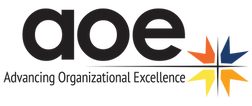EEOC’s report on the construction industry shows the need for DEI
- Vikki Sicaras

- Jun 29, 2023
- 3 min read
Updated: Jul 10, 2023

We’ve got a problem on jobsites, says the Equal Employment Opportunity Commission (EEOC). In May 2023, following a year of hearings and intense scrutiny on sexual and racial discrimination in the construction industry, the EEOC issued a detailed, 110-page report revealing that hate and bias are still prevalent on projects—up to and including sexual harassment, hate speech and nooses.
“For years, some of the most egregious incidents of harassment and discrimination investigated by the EEOC have arisen in the construction industry,” the report stated. “In many instances, men of color and women of all races and ethnicities face hostile work environments based on race, national origin, sex or some combination of these characteristics, on jobsites across the country.”
EEOC cautions that this is both a civil rights issue and a workplace safety issue. The report references an academic study that indicates an increased risk of workplace injury for tradespeople who experience harassment.
The report also acknowledges the efforts of many companies and industry groups to foster a more inclusive work environment for underrepresented groups. Regardless, it calls out discrimination in recruitment, apprenticeships and hiring as well as unequal treatment in training, hours, pay, promotions and layoffs.
“Harassment is pervasive on many jobsites and poses a significant barrier to the recruitment and retention of women and workers of color in the industry,” says the report. This is highly discouraging news not only for workers, but also for an industry that has been experiencing labor shortages.
EEOC’s next steps include continuing to meet with unions, employers and industry groups and developing technical assistance to help ensure fair hiring and equal treatment. The agency will provide industry-specific outreach and training on harassment prevention as it continues to investigate charges of discrimination—and pursue litigation where necessary.
Organizations don’t have to wait for EEOC outreach to establish diversity, equity, inclusion (DEI) strategies of their own.
Diversity, Equity, Inclusion—and how to get there
Employers that want a safe, respectful environment for their workers should not wait until they see problems at the office or on jobsites. DEI should be an important function of an organization, just like marketing, finance and sales. Policies and practices should be in place that promote equity, respect and inclusivity for all employees, and leadership teams should be very involved in managing these policies from the top. Let’s explore what each component of DEI means:
Diversity. Do not confuse diversity with affirmative action. While affirmative action focuses on taking positive steps to remove discrimination and get individuals hired into an organization, diversity in the workplace focuses on the culture within, ensuring a welcoming, supportive environment for all. Diversity is a more inclusive concept and includes people of various religions, marital status, sexual orientation, economic status and a variety of other states of being.
Equity. While equality means sameness, equity means fair treatment, fair access, fair opportunity and fair advancement for all people. Equity is an approach that ensures everyone is supported in their personal and professional development. Unlike equality, equity does not aim to treat all individuals in the exact same way. Instead, equity recognizes that advantages and barriers exist.
Inclusion. The act of creating environments in which everyone feels valued, respected and appreciated for their unique identities, even when they’re different from others. Inclusion outcomes are met when an organization—including its people, policies and programs—is truly inviting to all. It extends to the degree to which diverse individuals can participate in decision-making processes and development opportunities.
By developing and implementing effective DEI strategies, organizations also can mitigate risk, improve employee morale and productivity, and set themselves apart as employers of choice.
What are your next steps?
If DEI is something you want to explore, or simply learn more about to determine its fit with your organization, AOE can help. Our offerings include an online benchmarking tool, plan development, marketing and branding audits related to DEI, employee programs, training and more. Give us a call today!
.png)